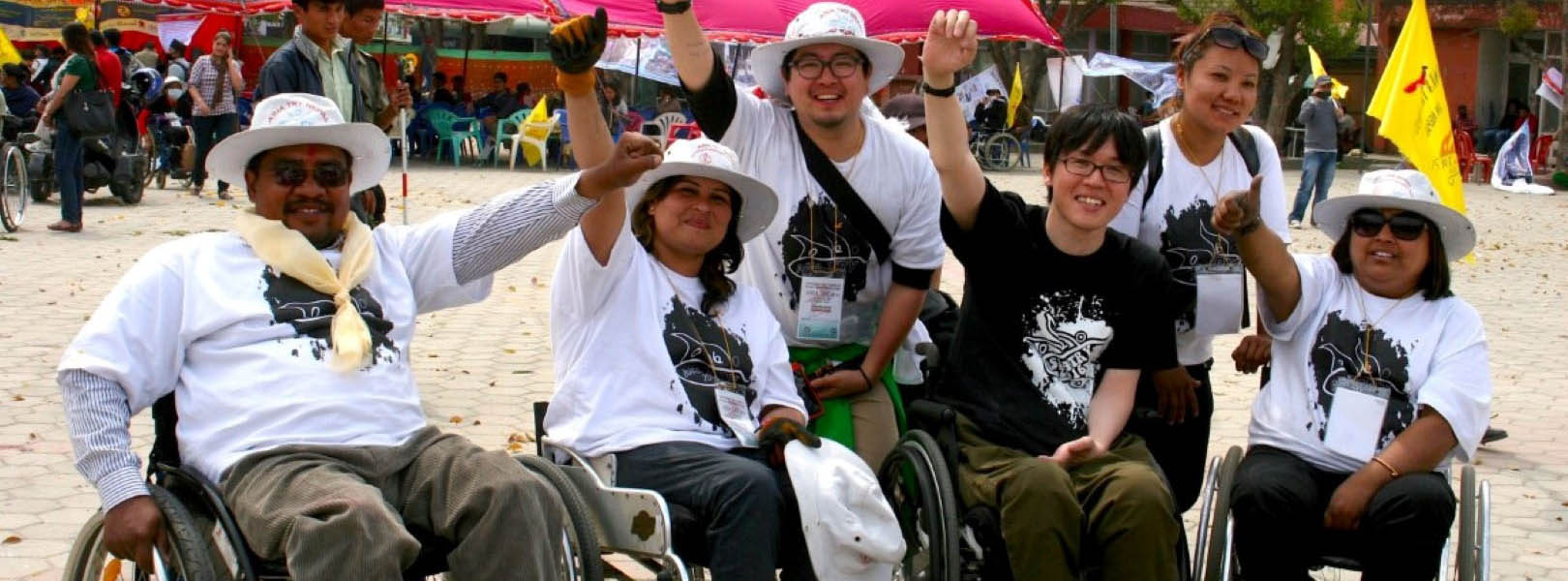Ongoing Advocacy

Advocacy is one of the four primary activities of CIL-Kathmandu. It aims to protect and promote the rights of people with disabilities so that they can live independently in the community. For the past 10 years, CIL-Kathmandu has been advocating for a much needed increase in the meaningful participation of persons with disabilities in all decision-making processes that affect their public and private lives.
CIL-Kathmandu advocates for the official implementation of laws, legislations, international conventions and treaties that enforce the rights of people with disability to live a life free of physical and social barriers.
Outlined below are the primary focus areas of CIL-Kathmandu’s advocacy efforts:
Rights to assistive devices and services
Assistive devices (e.g. wheelchairs, personal attendants) and personal attendant services are a requirement for many persons with severe and profound disabilities to allow them to carry out daily activities, personal mobility and public participation. Personal attendant services should be provided by well-trained, professional staff, however often they are provided by a parent, sibling or community member. Likewise, wheelchairs should be a right of all people who require them for their mobility, as opposed to a charitable donation.
Employment opportunities
Stigma and lack of awareness often prevents employers from welcoming persons with disabilities as employees in their companies and organizations. Persons with disabilities are highly capable and willing to work, and often only require very minor adjustments to their work environment to accommodate for their disability (some people do not require adjustments at all). If the private and public sectors were more open to employing persons with disabilities, it would lead to a relief of financial pressures on families with disabilities, and would allow individuals to live more independently within their community.
Unemployment allowance
For those who are unable to support themselves financially due to their disability, government support is necessary. Persons with disabilities should not be made to look for charitable funding, or seek financial support from their families. It is their right to receive support from the government to allow them to live comfortably without putting financial stresses for their loved ones.
Inclusive Education
Persons with disabilities have the right to a free education, and for the education system to ensure schools are equipped to teach children with disabilities through making adjustments to teaching-learning techniques, examination system, curriculum, evaluation techniques, educational materials and appropriate human resource development to address varying learning requirements of persons with disabilities.
Free health care
Free medical treatment and counselling services are the right of persons with disabilities who require regular medical treatment are taking regular medicine or require on-going treatment of some variety.
Accessible (barrier-free) physical environment and residential facilities
Effective implementation is necessary for the Guidelines on ‘Accessibility to Physical Infrastructure and Communication Services for Persons with Disabilities 2069’ to see increased accessibility in public places such as road, sidewalks, parks, market, airport, open spaces, religious and touristic places, educational institutions, bus parks, and government buildings are not accessible for all including persons with disabilities. In addition, it is necessary to ensure that reconstruction efforts from the April 2015 Earthquake ensure that accessibility standards are met.
